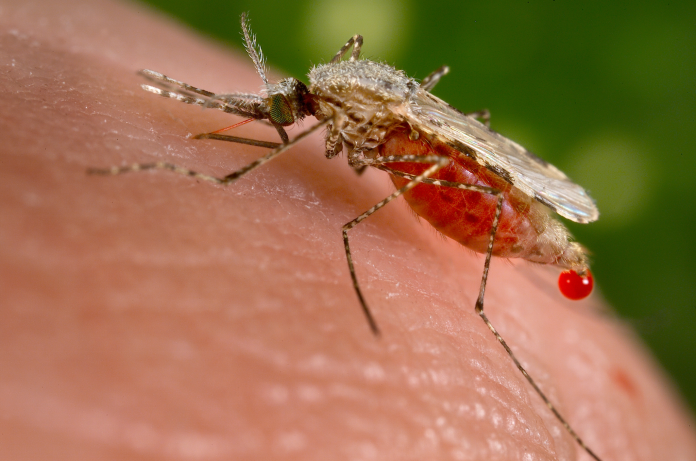Scientists are pioneering a groundbreaking approach to combat malaria by genetically modifying mosquitoes, a move that could potentially save hundreds of thousands of lives annually. The technique, which involves incorporating genes from honeybees and African clawed frogs, disrupts the normal development of the malaria parasite within the mosquito. This innovation could transform a mosquito bite in malaria-endemic regions from a potential death sentence into a harmless nuisance.
Malaria remains one of the world’s deadliest diseases. According to the World Health Organisation (WHO), nearly 600,000 people died from malaria in 2023, with three-quarters of these fatalities occurring in children under five. Despite decades of efforts to control the disease through insecticides, bed nets, and medications, progress has been uneven, and resistance to existing tools is growing. Now, genetic engineering offers a promising new strategy.
Dr Nikolai Windbichler, a geneticist at Imperial College London, is at the forefront of this research. He explains that genetically modified (GM) mosquitoes could succeed where other methods have faltered. “The advantage is that nobody needs to do anything,” he told Sky News. “For example, with a bed net, you need to impregnate it with insecticide and put it up when you go to sleep. It requires people to take action to be effective. But this technology is purely genetic, so no one will have to actually do anything for it to be beneficial.”
How the GM Mosquitoes Work
The process begins in the insectary at Imperial College, where thousands of mosquitoes are bred as part of the Transmission Zero project. The first step involves injecting mosquito eggs with genes from other species, such as honeybees and African clawed frogs. These genes produce proteins that are toxic to the malaria parasite, slowing its development inside the mosquito’s stomach. When a female mosquito bites a human to obtain blood (necessary for egg production), the parasite is too immature to infect the person, effectively blocking the transmission of malaria.
The second critical step ensures that the anti-malaria trait is passed on to all offspring. Researchers use a genetic technique called a “gene drive” to guarantee that the modified genes spread rapidly through the mosquito population. Dr Windbichler explains, “The trait is self-propagating. Over time, it will get more and more common in the population. It will also spread geographically so that eventually every malaria-transmitting mosquito in Africa could carry this.”
Why Mosquitoes Spread Malaria: An Evolutionary Perspective
Mosquitoes have evolved to become efficient carriers of malaria due to a combination of biological and environmental factors. The Anopheles mosquito, the primary vector for malaria, has a unique relationship with the Plasmodium parasite. Over millions of years, the parasite has adapted to exploit the mosquito’s biology, using it as a host to complete part of its life cycle. When a mosquito bites an infected person, it ingests the parasite, which then matures inside the insect before being transmitted to another human through a subsequent bite.
This evolutionary relationship has made mosquitoes highly effective at spreading malaria. However, scientists are now turning the tables by using genetic engineering to disrupt this cycle. By introducing genes that hinder the parasite’s development, researchers aim to break the chain of transmission.
Challenges and Future Prospects
While the potential of GM mosquitoes is immense, significant hurdles remain. Professor George Christophides, an infectious diseases specialist at Imperial College, cautions that it may be many years before these mosquitoes are released into the wild. “We have to prove in the lab that it works, and it works in the way we want it to work,” he said. “And then we have to prove that it is safe and that it doesn’t cause any unintentional harm, both to people and the environment. It has to be accepted by local communities and the regulators before we test them in the field.”
The research is being conducted in collaboration with scientists in Tanzania and is funded by the Bill and Melinda Gates Foundation. This partnership underscores the global effort required to tackle a disease that disproportionately affects some of the world’s poorest regions.
A Cost-Effective Solution
Current malaria control methods, such as vaccines and drugs, are expensive and only moderately effective. The two available malaria vaccines, for instance, are costly and provide limited protection. Meanwhile, the parasite is developing resistance to some antimalarial drugs. In contrast, the genetic modification technique is relatively inexpensive. Once the initial laboratory work is complete, the GM mosquitoes essentially do all the work, spreading the anti-malaria trait through the population without further human intervention.
A Glimmer of Hope
The development of GM mosquitoes represents a glimmer of hope in the fight against malaria. If successful, this technology could drastically reduce the burden of a disease that has plagued humanity for centuries. However, as with any new technology, careful testing and community engagement will be essential to ensure its safety and acceptance.
For now, the work continues in laboratories and insectaries, where scientists are meticulously refining their techniques. The dream is that one day, malaria will no longer be a threat, and the humble mosquito bite will be nothing more than an itchy annoyance.







